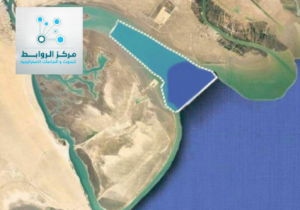A Nation’s Sovereignty Violated
The 2023 decision by the Iraqi Federal Supreme Court to annul Law No. 42 of 2013, which ratified the agreement on regulating navigation in the Khor Abdullah waterway between Iraq and Kuwait, has reignited debate over Iraqi sovereignty, economic suffocation, and the potential legal, political, and even military implications of this sensitive issue.
This matter is not merely legal — it touches the very heart of Iraq’s sovereignty over its territorial waters and maritime outlets, impacting its national dignity, economy, and security. It is a matter of national honor… and honor is not negotiable.
1. Legal Basis for the Court’s Decision
The court’s decision was based on a constitutional flaw in the ratification process, ruling that the agreement was not approved by a two-thirds majority as required by Article 61/IV of the Iraqi Constitution. Therefore, the law ratifying the agreement is constitutionally invalid, without addressing the core content of the agreement or its political and international implications.
Although the decision is technically constitutional in nature, it has triggered significant political and diplomatic fallout, both domestically and internationally, raising critical questions about Iraq’s sovereignty over its strategic maritime corridor. There are now pressures on the Federal Supreme Court to reverse its earlier ruling.
2. Why Did the President and Prime Minister File Appeals?
Separate appeals submitted by President Abdul Latif Rashid and Prime Minister Mohammed Shia’ Al Sudani reflect deep concern at the highest levels of Iraq’s leadership. Their appeals invoke Article 8 of the Constitution, which requires the state to respect its international commitments, and the Vienna Convention on the Law of Treaties (1969), particularly Article 27, which prevents states from citing domestic laws as a reason not to fulfill international agreements.
This step is seen as an attempt to preserve Iraq’s international credibility while also trying to manage growing domestic anger over what many perceive as an unfair agreement that threatens national sovereignty.
3. Khor Abdullah: Navigational Agreement or Strategic Chokehold?
Khor Abdullah is not just a shared waterway — it is Iraq’s only maritime artery to the world. Any infringement on Iraq’s rights in this corridor is seen as direct economic strangulation.
Many Iraqis believe that:
The agreement gave Kuwait strategic superiority in navigation.
The demarcation did not follow the “thalweg” principle (which places the boundary at the deepest part of the navigable channel), but rather a mid-channel split, limiting Iraq’s access.
The agreement was signed during a period of political, security, and economic weakness post-2003.
This agreement has restricted Iraqi shipping activity and weakened the national economy, which heavily relies on its southern ports, especially Umm Qasr.
4. Historical Context: Agreements Under Pressure
From the Uqair Agreement in 1922 to UN Security Council Resolution 833 in 1993, Iraq has historically been subject to imposed border demarcations during times of weakness or occupation. Many view the 2012 Khor Abdullah Agreement as a continuation of this trend.
The 2013 parliamentary vote on the agreement, described by its opponents as a “shameful vote,” caused a wave of public outrage, especially as it was passed amid sharp divisions and without comprehensive national debate.
5. Political and Security Dimensions
The issue goes beyond legal aspects and into geopolitics. Kuwait is pressing for final maritime border demarcation with strong backing from the Gulf Cooperation Council and the United States, placing Iraq in a dilemma: Should it honor an agreement not ratified constitutionally, or reopen negotiations despite international pressure?
Some Iraqi voices are calling for a full review of the Khor Abdullah Agreement — even questioning UN Resolution 833, seen by many as the basis for compromising maritime sovereignty.
Given the rising tensions, military escalation cannot be ruled out, even if not publicly discussed at this stage.
6. Between International Law and National Rights
While international law upholds the sanctity of borders and agreements, it also recognizes the invalidity of agreements signed under duress or unequal conditions.
Today, Iraq has the legal, political, and historical right to reopen this file, particularly if it can prove that the agreement was made under conditions that did not reflect full national will or that it harms vital national interests.
7. What Is Needed Now?
Iraq must:
Launch a comprehensive diplomatic campaign to explain its position to the world.
Demand renegotiation based on the thalweg principle to protect its navigational rights.
Resort to international courts if necessary.
Strengthen its naval capabilities to defend its waters and ports without escalating the situation.
Conclusion: Beware the Wrath of Iraqis
The message is clear: Iraq’s sovereignty, maritime rights, and economic interests are not up for negotiation. The Federal Court’s decision, while technical on the surface, has reopened an old wound and voiced a clear stance — Iraq will no longer submit.
Beware the wrath of Iraqis… they are a people who do not forget, a nation regaining its strength, and one that will never give up its rights — not at sea, not on land, and not in dignity.
Economic Studies Unit / North America Office
Al-Rabetah Center for Strategic Research and Studies

